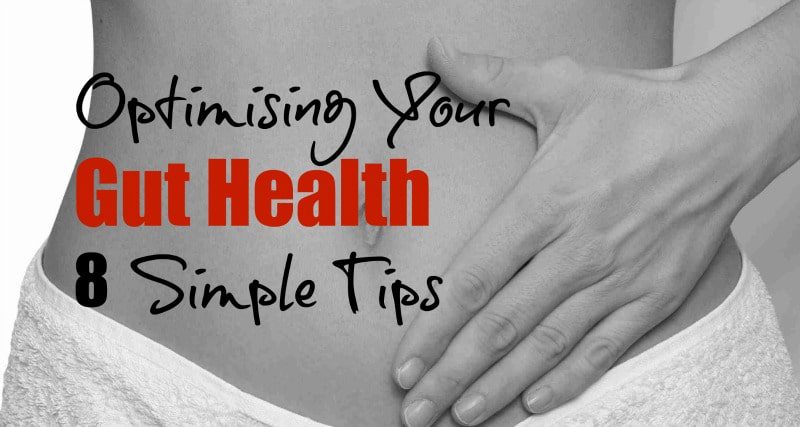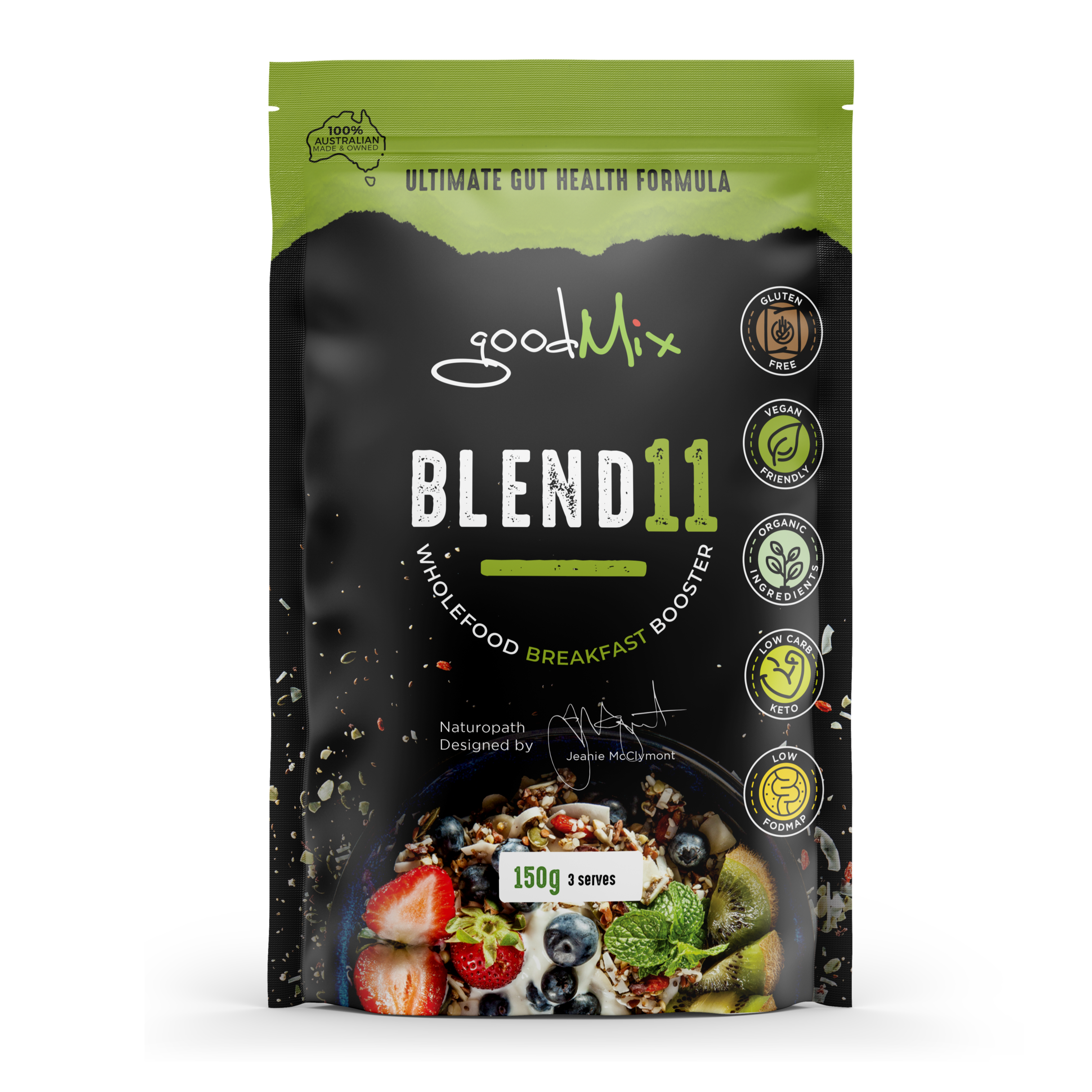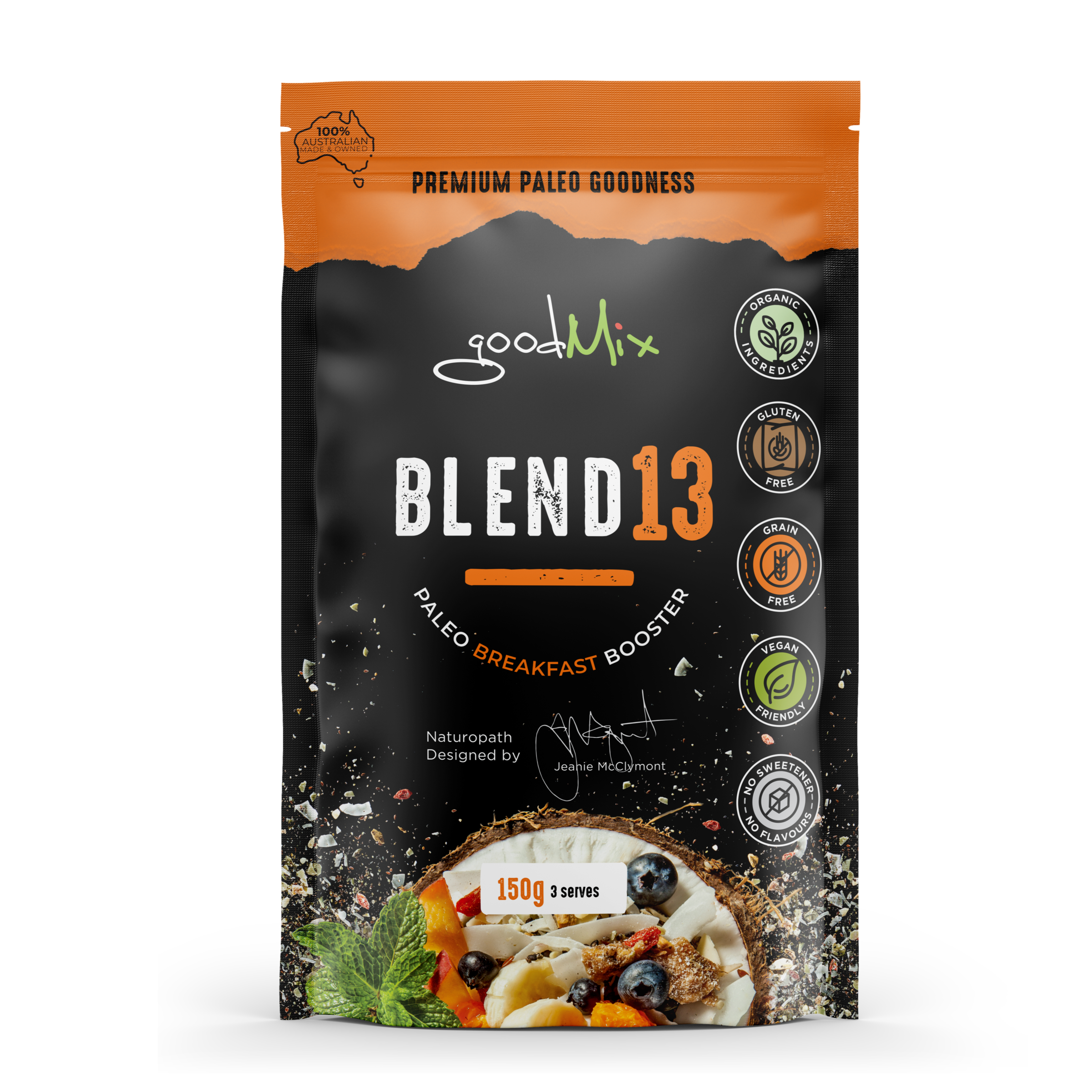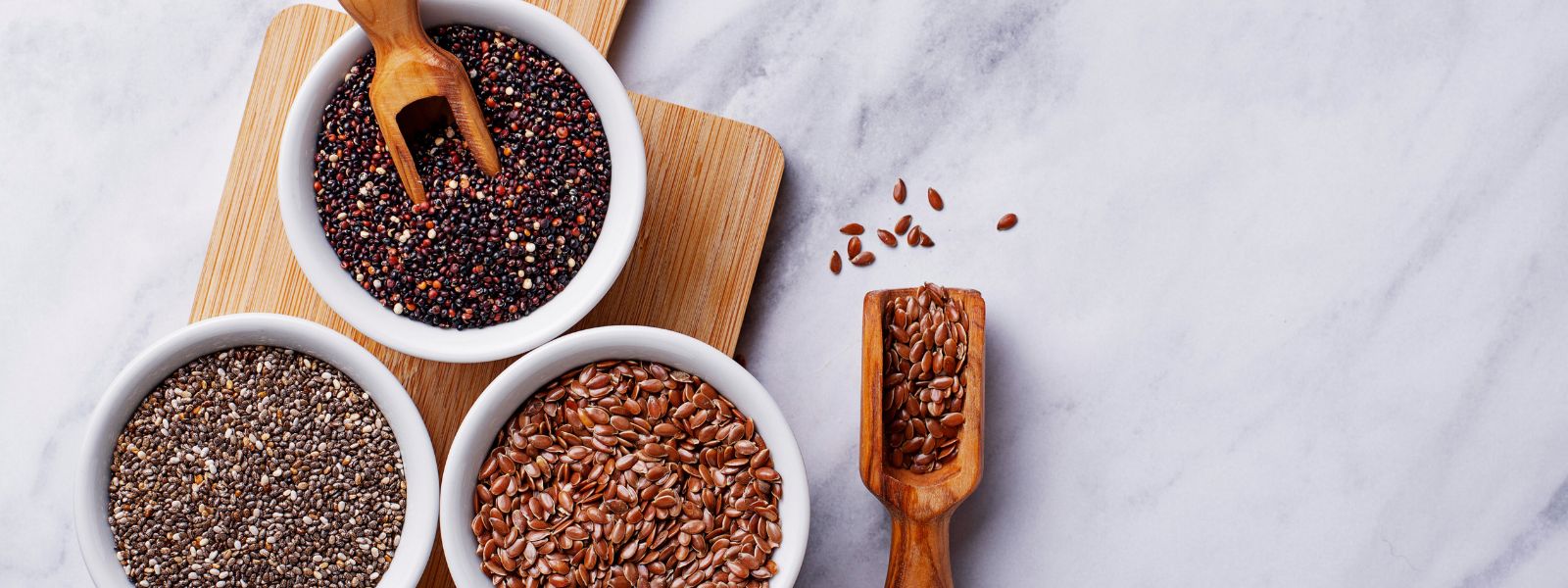Gut Health - What’s The Big Deal?
Your gut is not just a simple hollow tube that takes in food at one end & spits out poo at the other - it’s one of the most vital & complex systems in your body, & its proper function is integral to pretty much every other aspect of your health - from your brain & nervous system, to your immune system, to your skin, to your heart, your metabolism…everything depends on & is influenced by this place inside you - where things from the outside world are internalised & ’digested’. The gut collects information from ‘out there’ & talks to our immune system, metabolism & brain, so they know what to do in response to the info coming in from ‘out there’. It’s not just about extracting nutrients from our food - when our gut becomes 'out of whack', it effects every other system of our body.
All Disease Begins In The Gut
It seems that Hippocrates was pretty close to the truth when he made the bold statement ‘All disease begins in the gut’. Modern scientific research is now proving that disturbances in gut health (specifically its microbial balance) may be responsible for countless illnesses - ranging from the more obvious IBS & inflammatory bowel disease, to the less obvious depression, anxiety, arthritis, diabetes, obesity, & auto-immune disease. The science is fascinating, & we currently see only the tip of the iceberg.
What Can We Do?
1. Minimise Your Reliance On Antibiotics
When we take an antibiotic - it can wipe out an entire gutful of protective, helpful, really-important-to-our-health bacteria. Our gut plays host to an entire ecosystem of micro-organisms, that work together. Taking a course of antibiotics is like spraying herbicide through a rainforest, it will really upset the balance!
We need to respect antibiotics, realise their (double-edged sword) power & minimise their use. Colds, flus etc in a generally healthy human being will very rarely require or even benefit from a course of antibiotics. They will in fact often do a lot of harm & be of zero benefit - leaving us gut-impaired, immunocompromised & much more susceptible to the next viral infection that comes around. When was the last time your dr checked if your cold / flu symptoms were caused by a bacteria or a virus? I’m guessing never. There are so many other ways you can deal with the inevitable minor infections you will encounter! Learn about them, or get acquainted with a naturopath / alternative healthcare practitioner / integrative gp. Antibiotics used indiscriminately as they are today are responsible for a massive percentage of our current gut problems.
2. Consume Probiotic Food & Drinks

So what can we do to improve & support our gut bacteria?
Support your bacterial workers - you can help out your good bugs by eating as many ‘extra reinforcements’ as you can get your hands on! Fermented foods like yoghurt, sauerkraut, kimchi, kefir, kombucha all contain some helpful bugs - include them in your shopping list & daily menu! (Unfortunately I’m not sure if beer or wine count as health-giving fermented foods, but…it could be worth a researcher or 2 looking into it). You can also just swallow some useful bacteria in capsule form - if you aren’t a big fan of sauerkraut. But I highly recommend incorporating some fermented food / drinks into your regular diet - try to be topping up at least every 2-3 days with either a capsule or some food, & variety is good.
3. Consume Prebiotic Foods
You can strongly influence your bacterial health & diversity with food choices - by regularly consuming the favourite foods of your ‘good-guys’. Some foods encourage a healthy balance of gut flora, some foods just feed the naughty ones! Stay away from refined sugar, pasta, white bread, cakes, pastries etc. Include plenty of pre-biotic foods - i.e. foods that can’t be digested in the stomach & small intestine, & pass into the bowel - to become food that our good guys love! These include green banana (the flour is a great GF baking alternative), asparagus, garlic, onions, leeks, artichokes, asparagus, whole seeds, grains and legumes like lentils, beans and peas. There is loads of research currently being done - trying to figure out ‘the ideal diet’ to support a healthy gut. Scientists are not quite there yet, but we do know it pays to be a considerate host if you want your welcome bacterial guests to stick around!
4. Minimise Chemical Exposure
Avoid chemicals wherever you can (bacteria don’t thrive when bathed in chemicals…kinda like humans!) We often think that what we eat is the only thing effecting our health - its also what you rub into your skin, the cleaning products you’re using, the air you breathe, the water you drink, the materials you built your home from / work with everyday…it all adds up & will often end up proving disruptive to your gut health via its bacterial balance. So eat organic where you can, use natural skincare, avoid household chemicals like insect sprays etc & choose the most eco-friendly option at home & at work wherever you can.
5. Don’t Be Such a Bacteriaphobe!

Make friends with dirt. Most people see dirt, grime & bacteria as ‘the enemies’ - things that should be banished from the body, home & life with cleansers, soaps, sanitisers, hand wash, deodorants, antibacterial sprays & wipes & shields.
Try to use the ‘bare minimum’ of bacteriocides, to ensure basic home & personal hygiene, & don’t go overboard with the latest ‘kills 99.5% of anything’ type products! By using those extreme products, you may be killing 99.5% of the bacteria on your hands / in your fridge / sink / toilet / armpit etc….which sounds impressive, but guess what? That leaves the survivors (the .5%) who are the most virulent, with no competition for food or space! By disinfecting you’re actually throwing the balance right out, giving the nastiest bugs a free reign & an open invitation to take over your house & body! Not ideal…think hospitals, full of the scariest bacteria known to man, yet sanitised beyond belief!
Accept that bacteria constantly surround you, live on you & in you…& don’t worry too much about them. We should be more worried about making sure they are happy & balanced, living in harmony together with us than constantly getting rid of them. Bacteria are here to stay, & they’re mostly ‘on our team’…even if they only like us cos we provide them with a good home & plenty of food! It’s a symbiotic relationship - we both benefit.
6.  Chill Out A Bit
Chill Out A Bit
Stress…yes, your gut affects your brain, & your brain also affects your gut. Life is stressful today…you need to incorporate some
sort of stress relief into your weekly routine. Wether it’s a walk in a park / on the beach, a yoga session, meditation, massage, sport, hitting the gym, catching up with friends for a laugh, watching funny movies…whatever chills you out is vital to keeping your gut happy. Don’t neglect it!
7. Go Easy On The Gut Irritants
Avoid GIT irritants - or foods / drugs that may interfere with the sensitive gut lining, making it inflamed & more permeable. Examples of these foods are alcohol, NSAID's (i.e. aspirin, ibuprofen), gluten containing grains, sugar, (& dairy for a lot of people), then there’s a whole list of more ‘personalised’ food intolerances which can compromise the gut’s function. Experiment with an elimination diet & take notice of what really disagrees with you - or better still, invest some $ into working with an expert, just to get you on the right track!
8. Gut Health Starts During Pregnancy & Birth
The ultimate in ‘preventative medicine’ should be optimising a pregnant mum’s gut health & vaginal ecology prior to birth. The vaginal canal is home to some awesomely protective bacterial colonies, designed to get all over the baby & into every nook & cranny as it is squished out during the birthing process. Sounds kinda gross, but when this vaginal ecology is transferred to the newborn on its way out into the big wide world, the microbes act like a bacterial shield, taking up all the available ‘fresh baby real estate’ so that the other less useful / nastier bacteria cannot stake a claim.
I’m sure some baby powder company will bring out an ‘improved’ version soon - ‘Baby Birth Gel’, filled with lab bred lactobacillus & designed for a post-caesarian massage...probably best to stick with the real deal - soon it will be common hospital protocol to collect a vaginal swab & deposit it into the mouth of babies born via caesarian..be conscious of this if you have to deliver by c-section, or have recently had a baby who was surgically delivered - there are probiotic powders designed especially for new bubs, which can help get them back on track towards developing a healthy gut bacterial population.

 Make friends with dirt. Most people see dirt, grime & bacteria as ‘the enemies’ - things that should be banished from the body, home & life with cleansers, soaps, sanitisers, hand wash, deodorants, antibacterial sprays & wipes & shields.
Try to use the ‘bare minimum’ of bacteriocides, to ensure basic home & personal hygiene, & don’t go overboard with the latest ‘kills 99.5% of anything’ type products! By using those extreme products, you may be killing 99.5% of the bacteria on your hands / in your fridge / sink / toilet / armpit etc….which sounds impressive, but guess what? That leaves the survivors (the .5%) who are the most virulent, with no competition for food or space! By disinfecting you’re actually throwing the balance right out, giving the nastiest bugs a free reign & an open invitation to take over your house & body! Not ideal…think hospitals, full of the scariest bacteria known to man, yet sanitised beyond belief!
Accept that bacteria constantly surround you, live on you & in you…& don’t worry too much about them. We should be more worried about making sure they are happy & balanced, living in harmony together with us than constantly getting rid of them. Bacteria are here to stay, & they’re mostly ‘on our team’…even if they only like us cos we provide them with a good home & plenty of food! It’s a symbiotic relationship - we both benefit.
Make friends with dirt. Most people see dirt, grime & bacteria as ‘the enemies’ - things that should be banished from the body, home & life with cleansers, soaps, sanitisers, hand wash, deodorants, antibacterial sprays & wipes & shields.
Try to use the ‘bare minimum’ of bacteriocides, to ensure basic home & personal hygiene, & don’t go overboard with the latest ‘kills 99.5% of anything’ type products! By using those extreme products, you may be killing 99.5% of the bacteria on your hands / in your fridge / sink / toilet / armpit etc….which sounds impressive, but guess what? That leaves the survivors (the .5%) who are the most virulent, with no competition for food or space! By disinfecting you’re actually throwing the balance right out, giving the nastiest bugs a free reign & an open invitation to take over your house & body! Not ideal…think hospitals, full of the scariest bacteria known to man, yet sanitised beyond belief!
Accept that bacteria constantly surround you, live on you & in you…& don’t worry too much about them. We should be more worried about making sure they are happy & balanced, living in harmony together with us than constantly getting rid of them. Bacteria are here to stay, & they’re mostly ‘on our team’…even if they only like us cos we provide them with a good home & plenty of food! It’s a symbiotic relationship - we both benefit.




 Chill Out A Bit
Chill Out A Bit
